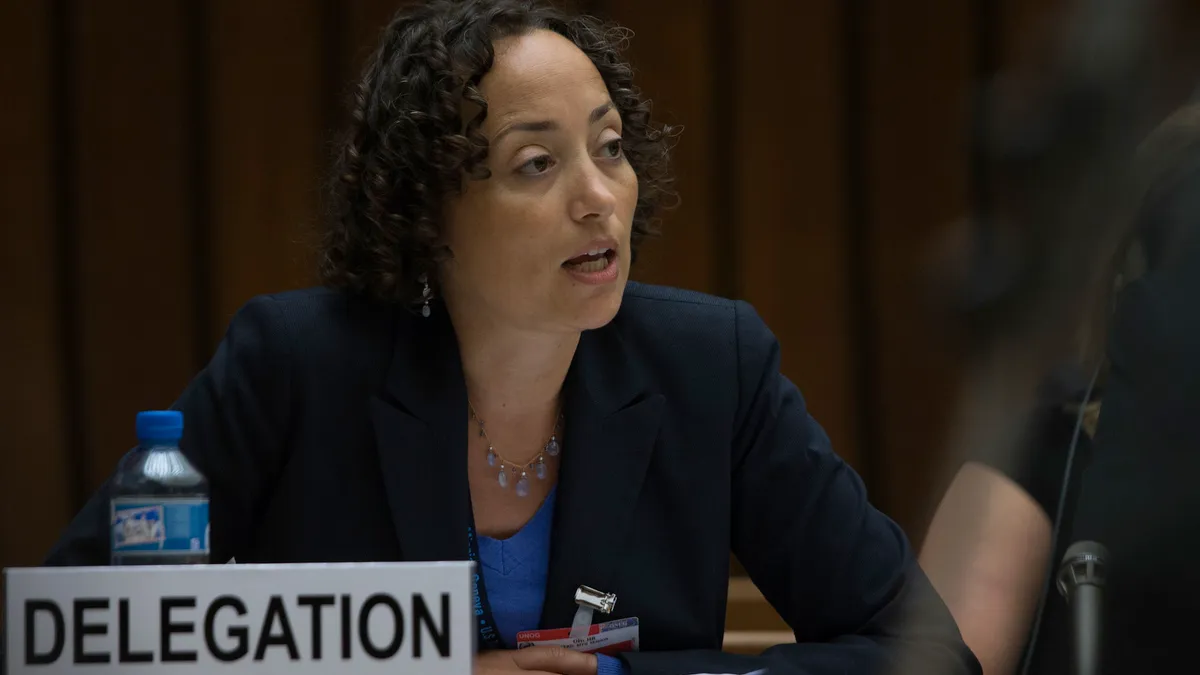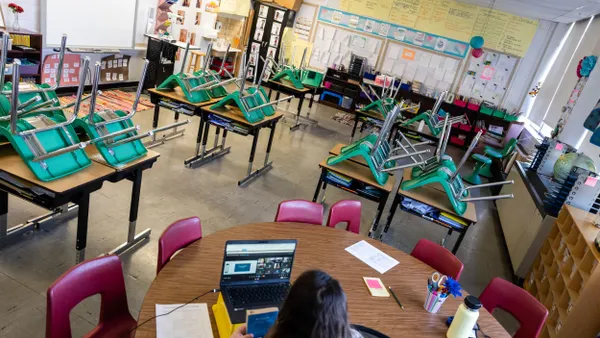The U.S. Department of Education's Office for Civil Rights saw a record number of complaints logged last year, stretching resources thin for the agency's civil rights enforcement arm and keeping it from addressing complaints as quickly as possible.
In fiscal year 2021, the OCR received more than 5,200 K-12 discrimination complaints, and 2022 surpassed that number.
"We saw a very high volume of complaints come in last year, the highest that we've ever seen in the history of the Office of Civil Rights," said Catherine Lhamon, assistant secretary for OCR. "And so we are operating under a crushing workload for our staff and trying to triage to address the complaints and to move as quickly and as effectively as we can."
Some of the staff are juggling caseloads of up to 48 cases per person. "And that is an untenable caseload," Lhamon said in an interview Thursday with K-12 Dive. "It's very, very worrisome for me."
COVID-19, disabilities, race, LGBTQ top caseloads
That increased caseload will be reflected in the 2022 annual report set to be released by the end of April, a department spokesperson said. Just like in previous years, the majority of complaints received are related to disabilities, said Lhamon, who also led the OCR under the Obama administration.
However, many such cases — and other complaints generally — that the office saw in 2022 and beyond are also related to the COVID-19 pandemic.
"There's heightened awareness now about the need for compensatory services for students with disabilities if they have been unable to receive services that they are entitled to because of their disability in the COVID context," said Lhamon. "And how best to ensure that those students are fully served now."
Other cases born out of the pandemic range from complaints around mask-wearing to the availability of services during remote learning and concerns about student health and well-being.
In line with numerous state laws passed in recent years limiting discussion around gender, sexuality and race-related topics, OCR has also experienced a high volume of complaints around racial harassment, gender identity and sexual orientation issues in schools.
While OCR has been addressing racial hostility in schools for decades, "the volume is notable now," Lhamon said.
A change in approach
To help address the increasing caseload more effectively, the office last year changed how it approaches the complaint and resolution process.
Revisions made in August 2022 to the Case Processing Manual — the internal document OCR uses to manage cases — show OCR now routinely offers complainants an option for mediation when filing a case as an alternative to an investigation, which can be a months-long process.
In past years, OCR offered mediation only on a case-by-case basis, rather than to all complainants.
Complainants are using the new option for mediation more often, which has allowed OCR to resolve issues more quickly, said Lhamon. The office resolved some mediation requests in less than two months, for example. "We have seen early success with that tool and an ability to resolve issues more quickly," she added.
The 2022 revisions also show other significant changes.
They narrowed the kind of information considered a complaint, for example. The new manual explicitly states that the following do not count as complaints: oral allegations, anonymous correspondence, courtesy copies of correspondence or a complaint filed with another entity or person, and inquiries seeking advice or information rather than intervention. In the past, OCR could decide whether such information could be investigated as a complaint on a case-by-case basis.
The new internal document also shows the removal of a section that previously allowed complainants to appeal dismissals by OCR under certain conditions, like if a complaint was missing some facts, an alleged violation of the law or evidence.
While these changes could also expedite case processing, Lhamon did not specify whether they were directly related to the high number of complaints. She did, however, say her office is training its staff to meet recent increased demand.
"We're trying to make sure that we're moving effectively through our docket, and that we can answer the issues that come to us," she said. "But… the case volume is very high. And it is a challenge to manage at this time."












